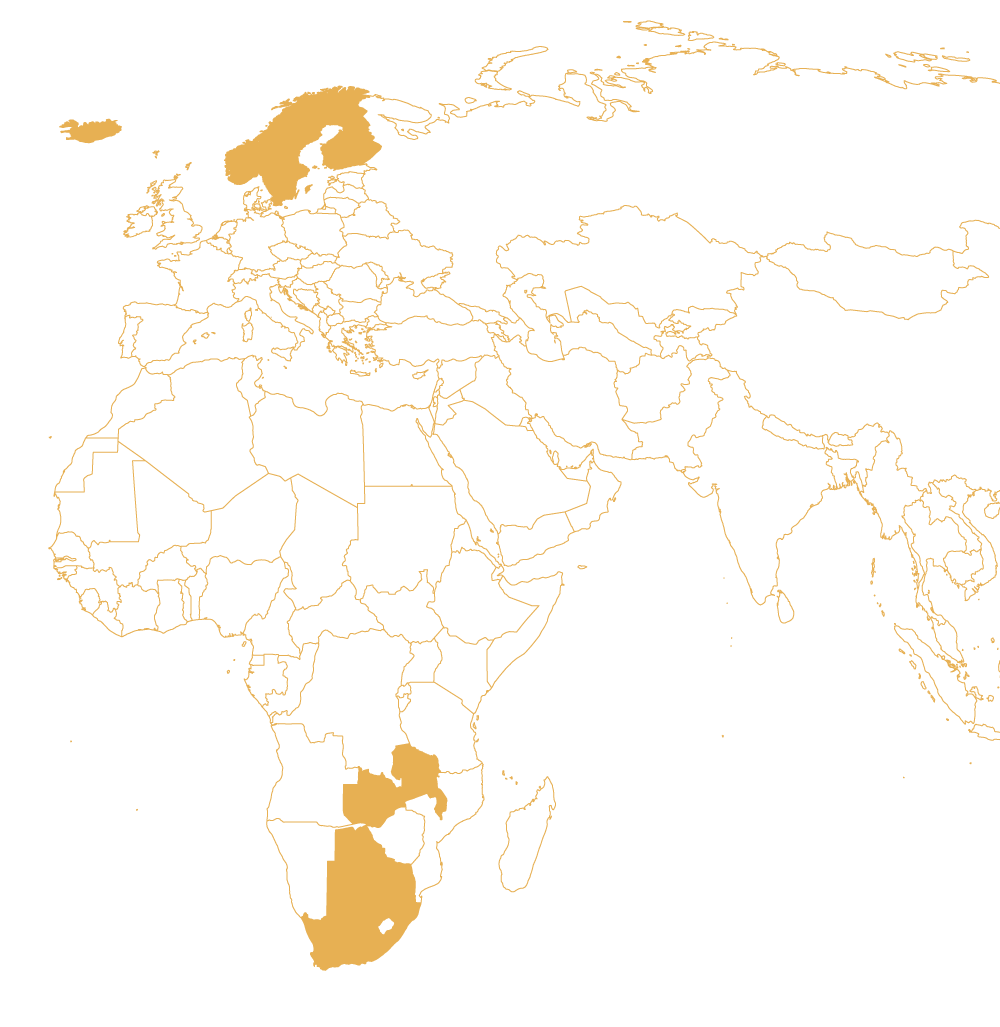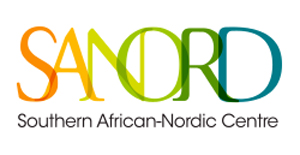
Statutes
Definitions
- Unless the context otherwise indicates, “Southern African region” comprises the following countries: Angola, Botswana, the Democratic Republic of Congo, Lesotho, Madagascar, Malawi, Mauritius, Mozambique, Namibia, South Africa, Swaziland, United Republic of Tanzania, Zambia and Zimbabwe.
- Unless the context otherwise indicates, “Nordic region” comprises the following countries: Denmark, Finland, Iceland, Norway, Sweden.
Name
- The name of the organization is the Southern African – Nordic Centre (hereinafter referred to as the “Centre”).
- The Centre is a juristic person in terms of South African Law and can sue or be sued in its own name.
- The Centre is a non-profit organization.
- The seat of the Centre is at the University of the Western Cape. The relationship between the University of the Western Cape and the Centre shall be regulated by an agreement to be entered into between the Centre and the University of the Western Cape.
Aim
The Southern African – Nordic Centre is a non-profit, membership organisation of institutions of higher education and research, committed to advancing strategic, multilateral academic collaboration between institutions in the two regions, as they seek to address new local and global challenges of innovation and development. Its activities are based on shared fundamental values of democracy, social equity, and academic engagement, and on the deep relationships of trust built up between the regions over many years.
Membership
- The founding members of the Centre are the University of Aarhus, the University of Bergen, the University of Malawi, the University of Turku, Uppsala University, the University of the Western Cape and the University of Zambia.
- Institutions of higher education, research or academic networking in the Southern African region and in the Nordic region may apply for membership of the Centre.
- Applications for membership will be decided upon by the Executive Board.
The Council
- The Council of the Centre consists of the Vice-Chancellors/Principals, or their respective alternates, of those institutions that are members of the Centre
- The Director of the Centre is in attendance, without voting rights, at meetings of the Council and is responsible for the minutes.
- One-third plus one of the members of the Council constitutes a quorum at meetings of the Council. One half plus one of the institutions represented constitutes a majority.
- The Council elects a Chairperson and a Vice-Chairperson. The term of office of the Chairperson and Vice-Chairperson is two years.
- The Chairperson and the Vice-Chairperson are to represent different regions
- The Chairpersonship of the Council shall rotate between the two regions.
- The Council is tasked to:
- appoint the Board and to fill vacancies on the Board;
- establish policy on matters and strategy related to the Centre and its activities;
- approve the annual budget and annual report, including the annual financial statements of the Centre; and
- consider recommendations from the Board.
- Every three years the Council appoints a Nominations Committee consisting of 6 members, 3 from each region, to advise it on the election of Officers/Committees.
- The Council meets annually, normally in conjunction with the Annual Conference. Special Council meetings can be called by the Executive Board or at least ten per cent of the Council members with at least thirty days’ notice.
Board
- The management of the affairs of the Centre shall be vested in the Board.
- The Board consists of:
- the Chairperson and the Vice-Chairperson of the Council
- six other members of the Council who are designated by the Council for a period of office of two years; and
- the Director of the Centre who is always in attendance but without the right to vote, and who is responsible for the minutes.
- Members of the Board whose period of office has expired are eligible for re-election.
- The Council normally designates the members of the Board from the nominations made to the Council by the Nominations Committee.
- One-half plus one of the voting members of the Board constitutes a quorum at meetings of the Board.
- The Board appoints the Director of the Centre and such other staff members as may be required to carry out the operations of the Centre.
- The Board makes recommendations on financial matters to the Council.
- The annual financial statements and annual report are submitted annually to the Council for approval.
- The Board is entitled to establish sub-committees and working groups.
- The Board may meet utilizing teleconference technology.
Amendments
- Amendments of the Statutes of the Centre may only be made by a resolution passed at a duly constituted Council meeting.
- A proposed amendment will only have force and effect if such proposal is
supported by at least two-thirds of the members of the Council, provided that members may exercise their vote, through the seat of the Centre at the
University of the Western Cape, prior to the meeting where such proposed
amendment is to be discussed. - Proposals and/or recommendations for amendments to this Statute may be
made by any member of the Council and must be submitted to the Council
Chair at least three months prior to the annual meeting.
Financial means
- The Centre is funded by:
- membership fees;
- donations to the Centre; and
- other miscellaneous income.
- Members of the Centre are obliged to pay their membership fees on or before such date as may be determined by the Board.
- Membership fees are recommended annually to the Council by the Board.
- The Board is responsible for preparing and recommending the annual budget of the Centre to the Council.
- The Centre must open a banking account at a registered banking institution in South Africa and may open one or more banking accounts in any one or more of the countries contemplated in Article IX hereunder
Dissolution
- The Centre may be dissolved by a resolution of the Council.
- The Board is responsible for the settlement of the affairs and the obligations of the Centre before its dissolution.
- Any assets of the Centre remaining after its dissolution will go to such
organisations as may be specified by the Board, the goals of which are to be compatible with the aims of the Centre.
